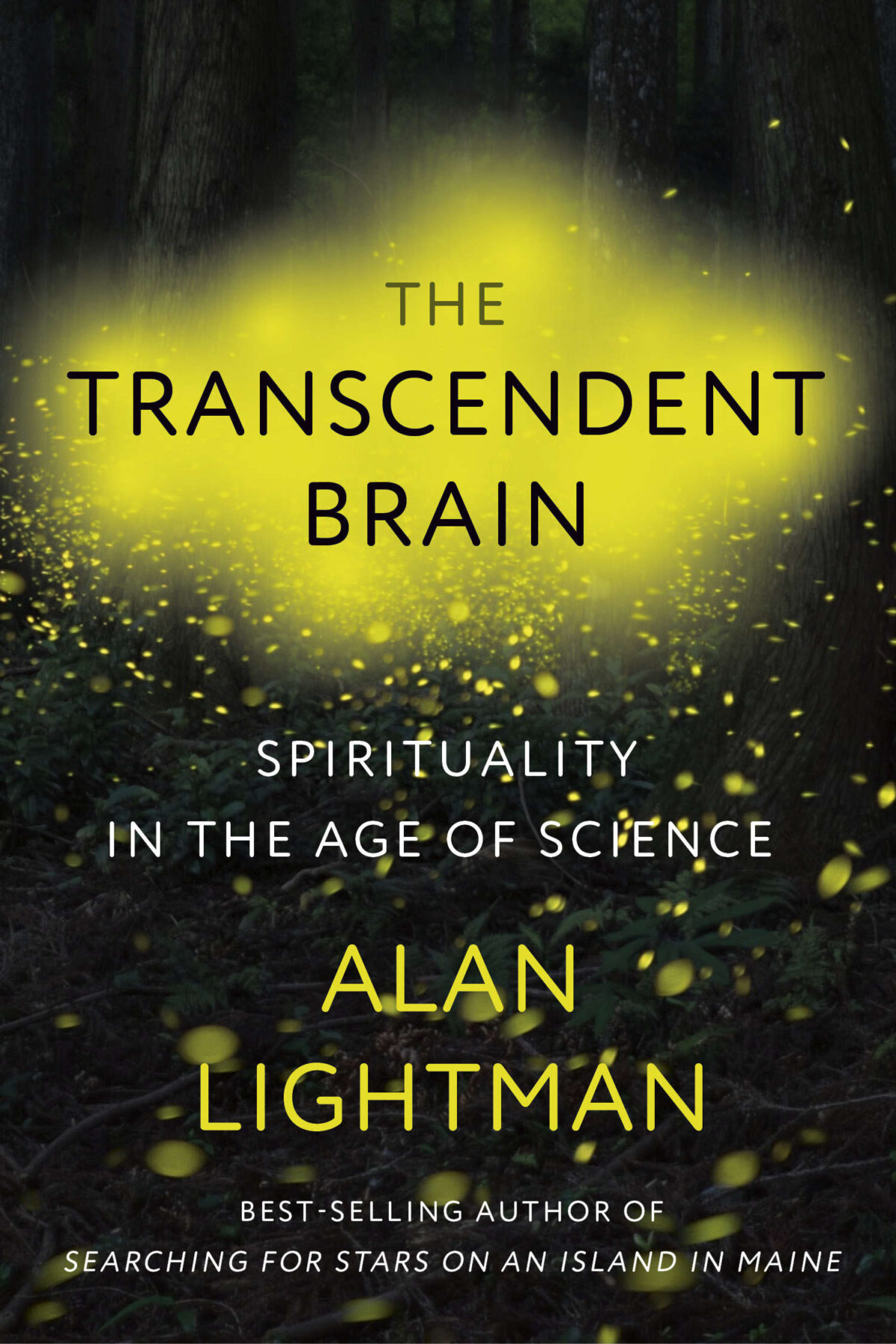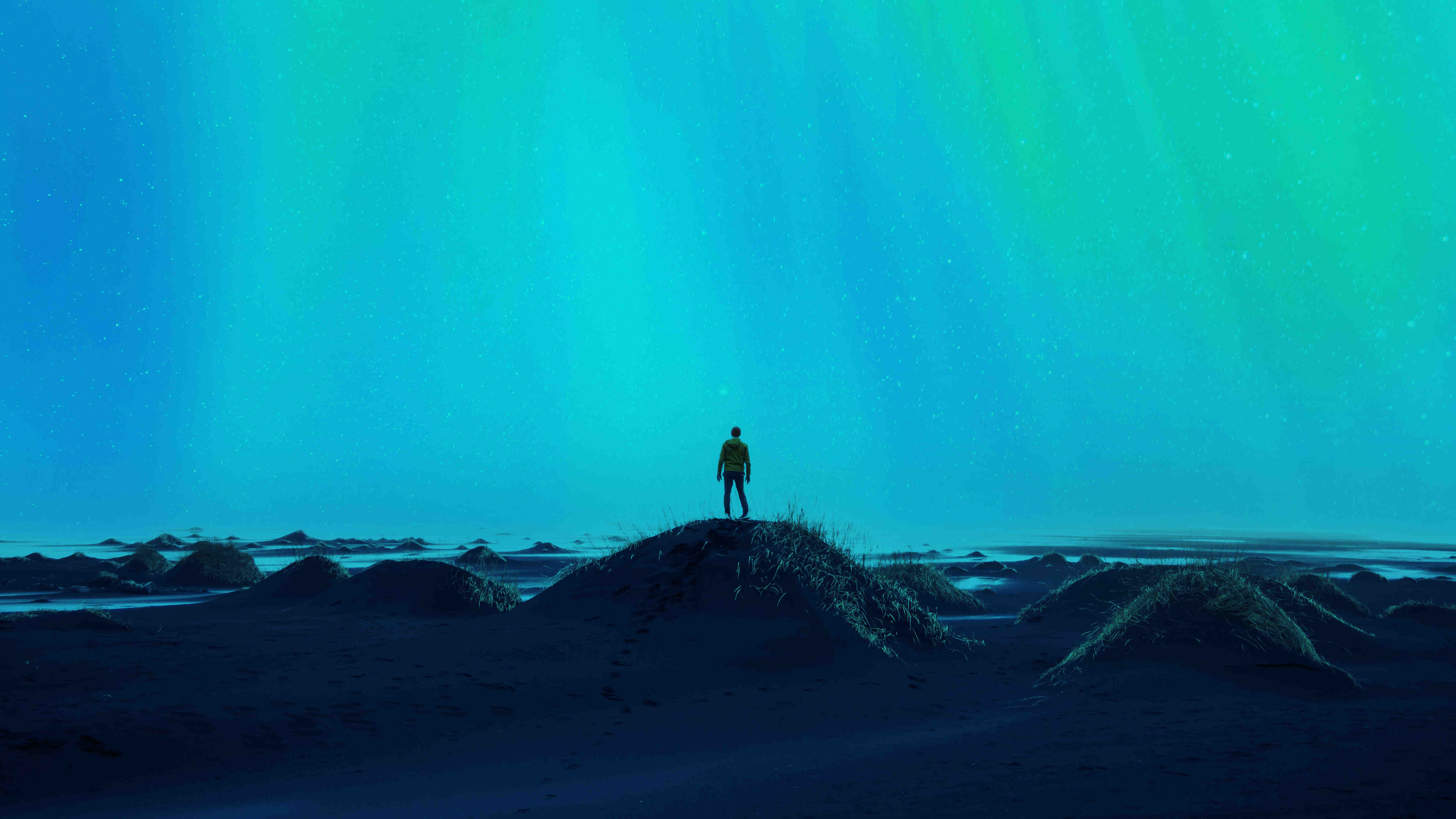When Alan Lightman was nine years old, he had a mystical vision that upended his ideas about life and the universe. “I had the sensation of seeing my entire life, and indeed the life of the entire planet, as a brief flicker in a great chasm of time,” he writes. “Without body or mind, I was somehow floating in the gargantuan stretch of space.” With this visionary rush came a deep conviction that he was part of something bigger than himself.
In subsequent years, Lightman, a writer, physicist, and MIT humanities professor (as well as an Undark advisory board member), wrestled to square such moments with his belief in a universe ruled by natural law. He emerged from this wrestling match with “The Transcendent Brain: Spirituality in the Age of Science,” which makes an impassioned case that spirituality can be explained in scientific terms — and that transcendent experiences arise from the raw material of human biology.

BOOK REVIEW — “The Transcendent Brain: Spirituality in the Age of Science,” by Alan Lightman (Pantheon, 208 pages).
Many a spiritual science book starts from the premise that God exists and marshals evidence to support that conclusion. “The Transcendent Brain” turns that tradition on its head. It starts from the premise that there is no God — that the material world is all there is — and strives to describe spiritual experience within that framework.
Lightman launches his argument with a warp-speed tour of several philosophers’ views on spirituality. The lead player in this revue is the 18th century thinker Moses Mendelssohn, who made what Lightman considers the most thoughtful argument for the existence of a non-material soul. Mendelssohn saw the soul as the conductor of an orchestra, an entity that integrates and harmonizes the body’s elements.
Centuries before, St. Augustine had sketched out the contours of this view: The soul “seems to me to be a special substance,” Augustine wrote, “endowed with reason, adapted to rule the body.” But while he respects Mendelssohn, Augustine, and other theists, Lightman sets some of them up mostly to knock them down, arguing that none of them proved the soul’s existence beyond the material world. He aligns more with Lucretius, a Roman philosopher poet and early champion of the idea that everything consists of tangible atoms.
Absent the soul or other supernatural conductor, what allows the human mind to function as a whole greater than its parts? In Lightman’s telling, it’s emergence, the tendency of complex systems to develop qualities their components do not have by themselves.
Emergence, he says, accounts for the mystery of how the brain’s biological wetware — cells, nerves, vessels — gives rise to human consciousness. “The magnificent dirt cathedrals formed by colonies of termites, the patterns of snowflakes, the intricate and highly functional folding arrangements of proteins,” he writes, “all show that an external organizing force is not required to produce order and harmony from mindless parts.”
Lightman includes spirituality among humans’ most important emergent qualities, crediting a mysterious convergence of atoms and molecules for the series of otherworldly encounters he’s had — including one in which, as he lay in a small boat gazing at stars, his body and sense of himself seemed to dissolve into the vast expanse around him. Once higher levels of consciousness are present, Lightman contends, transcendent experiences like his own naturally arise, much as seedlings sprout where there’s enough soil, water, and light.
Drawing on the work of psychologists like Cynthia Frantz, of Oberlin College, he also outlines how spiritual impulses arise from an evolution-driven desire: to dedicate our lives to something more significant than ourselves. Just as joining cooperative human groups ensured our physical survival, connectedness — to nature or to others — ensures our ongoing well-being.
“The Transcendent Brain” is in some ways a descendant of books like Sam Harris’ “The End of Faith: Religion, Terror, and the Future of Reason” and Richard Dawkins’ “The God Delusion,” which advocate for an understanding of reality that does not require a higher power. What sets this book apart from its atheistic forebears is Lightman’s openness, compassion, and curiosity. Where Dawkins unapologetically calls religion nonsense, Lightman leans into his own and others’ spiritual feelings rather than dismissing them as balderdash. “I don’t wish to diminish in any way the magnificent and utterly unique experiences of consciousness and spirituality,” he writes, adding that such peak moments account for much of life’s joy and meaning.
Oddly enough, it’s hard not to suspect that what Lightman really wants is to start a faith of his own, or at least an outlook that precisely fills a faith-shaped void. He calls his school of thought “spiritual materialism” and, with a convert’s enthusiasm, contends that it leaves room for awe despite being anchored in the concrete: “What we need is a balance between wanting to know how the world works — the driving force of science — and the willingness to surrender ourselves to some things that we may not fully know.”
For many atheists and agnostics, Lightman’s outlook may be compelling and even comforting, stretching as it does to accommodate transcendence without relating it to a deity. The question is whether Lightman can go beyond preaching to a secular choir. What’s missing right now from spiritual materialism — and what humans crave more than almost anything — is a cohesive narrative with which to explain the universe, one that explains how consciousness and transcendence and all the rest came to be.
The concept of a creator God, reality-based or not, provides a straightforward answer to that question. The concept of emergence does not. It describes phenomena, like the human mind and the spiritual leanings it generates, that are more than the sum of their material inputs, but provides little or no insight into exactly how the crucial synthesis occurs.
To Lightman’s credit, he is honest about the limits of science’s current ability to explain the ineffable. “We may never be able to show in a step-by-step manner how this highest level of consciousness emerges from the neurons and synapses of the material brain,” he admits.
But Lightman stumbles — even in a scientific sense — when he claims, without clear evidence, that things we don’t understand nonetheless have a material cause. Among scientists, there is valid disagreement on this point: The theoretical biologist Stuart Kauffman, for instance, has argued that the universe is too complicated to have arisen solely from material atoms. In assuming that materialism will whoosh in to fill all gaps in understanding, Lightman falters — much as some theists do in claiming that if science can’t explain something, it must be God’s doing.
Even so, Lightman’s project ultimately feels redeeming — and the biggest reason is that it veers far away from Dawkins-style dogmatism and toward celebration of profound, shared human experience. He envisions a world in which “believers and nonbelievers can stand on the precipice between the known and the unknown, without fear, without anxiety, but instead with awe and wonder at this strange and beautiful cosmos.”
Emergent marvels like termite cathedrals and folding proteins may never inspire the same worship as a creator God. But we can all agree that what we perceive, through our chosen lenses on the universe, is pretty amazing. “I believe in the laws of chemistry and biology and physics,” Lightman writes, “but I don’t think they capture, or can capture, the first-person experience of making eye contact with wild animals and similar transcendent moments. Some human experiences are simply not reducible to zeros and ones.”
Elizabeth Svoboda is a science writer based in San Jose, California. Her most recent book for children is “The Life Heroic.”











It is of course a challenge to attempt to explain what has not yet been proven. However, it appears that the writer may be unaware that she is steeped in religious indoctrination when she gives preferential credibility to the concept of a god. To paraphrase Dawkins, what does it mean when a person accepts a leap of faith for what is arguably the most personal and central sense of being? And taking that a step further, does accepting a leap of faith for the explanation of your being mean that you are also more susceptible to conspiracy theories and falsehoods?
It takes courage to challenge conventional beliefs. History shows us that those revealing new truths were often chastised, imprisoned or worse. While not every controversial proposition is going to be correct, I hope our search for greater awareness allows more people to entertain ideas of intelligent, studied peoples. Galileo and Copernicus undoubtedly wished this.
I disagree with the author that “a creator God” explains the origin of the universe and our human consciousness. There is no evidence whatsoever for any god, let alone a supernatural realm. A “God” as an “explanation” is a weak cop-out, and an admission of ignorance of an explanation, since a supernatural explanation explains nothing about the actual universe. Alan Lightman is on the right track, and I admire him for his courageous stance on this issue (Lightman admits elsewhere that he is an atheist), along with such practitioners of “religious naturalism” (a similar philosophy to Lightman’s “spiritual materialism”) as science writer and naturalist Chet Raymo and biologist Ursula Goodenough. Thank you, Dr. Lightman. I enjoyed “The Trancendent Brain” (which I finished reading just last month) immensely.
This idea is included in my book too. I agree that when a good scientific theory is applied to managing ourselves and our society, there should naturally exist an ethical result being included, and I say so there.
“The theoretical biologist Stuart Kauffman, for instance, has argued that the universe is too complicated to have arisen solely from material atoms.”
This is a simplistic, incorrect summary of Kauffman’s views.